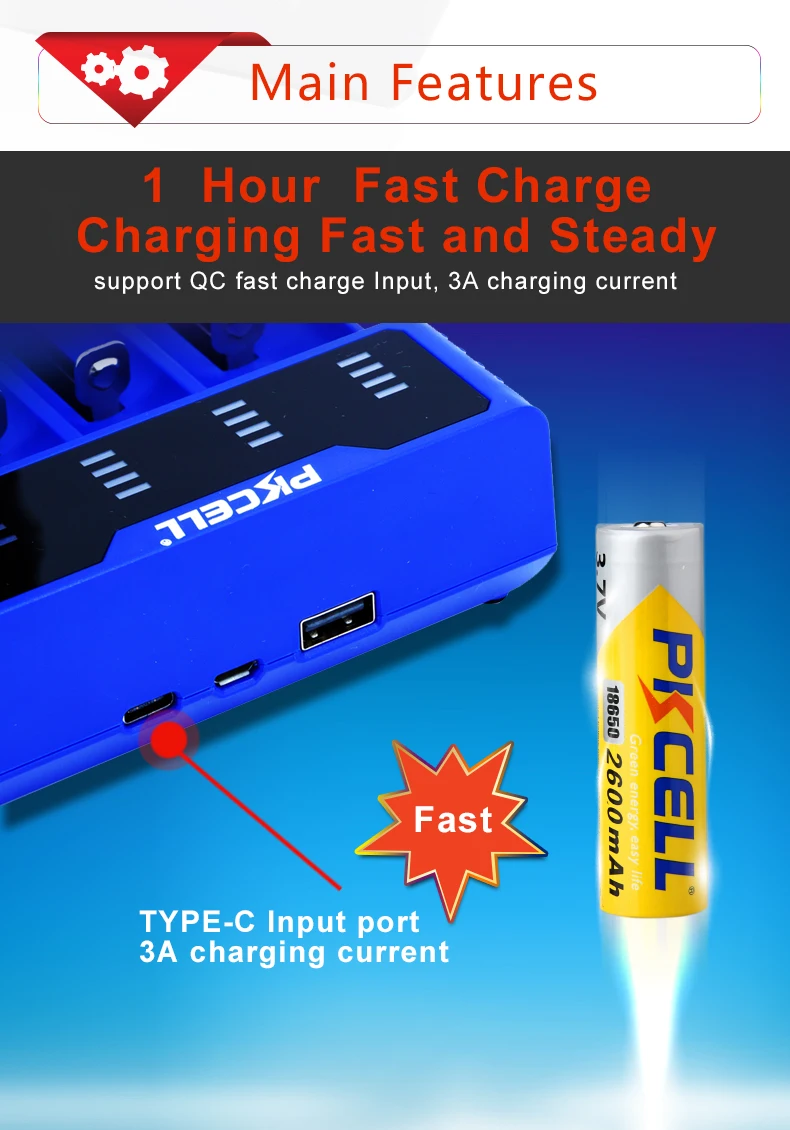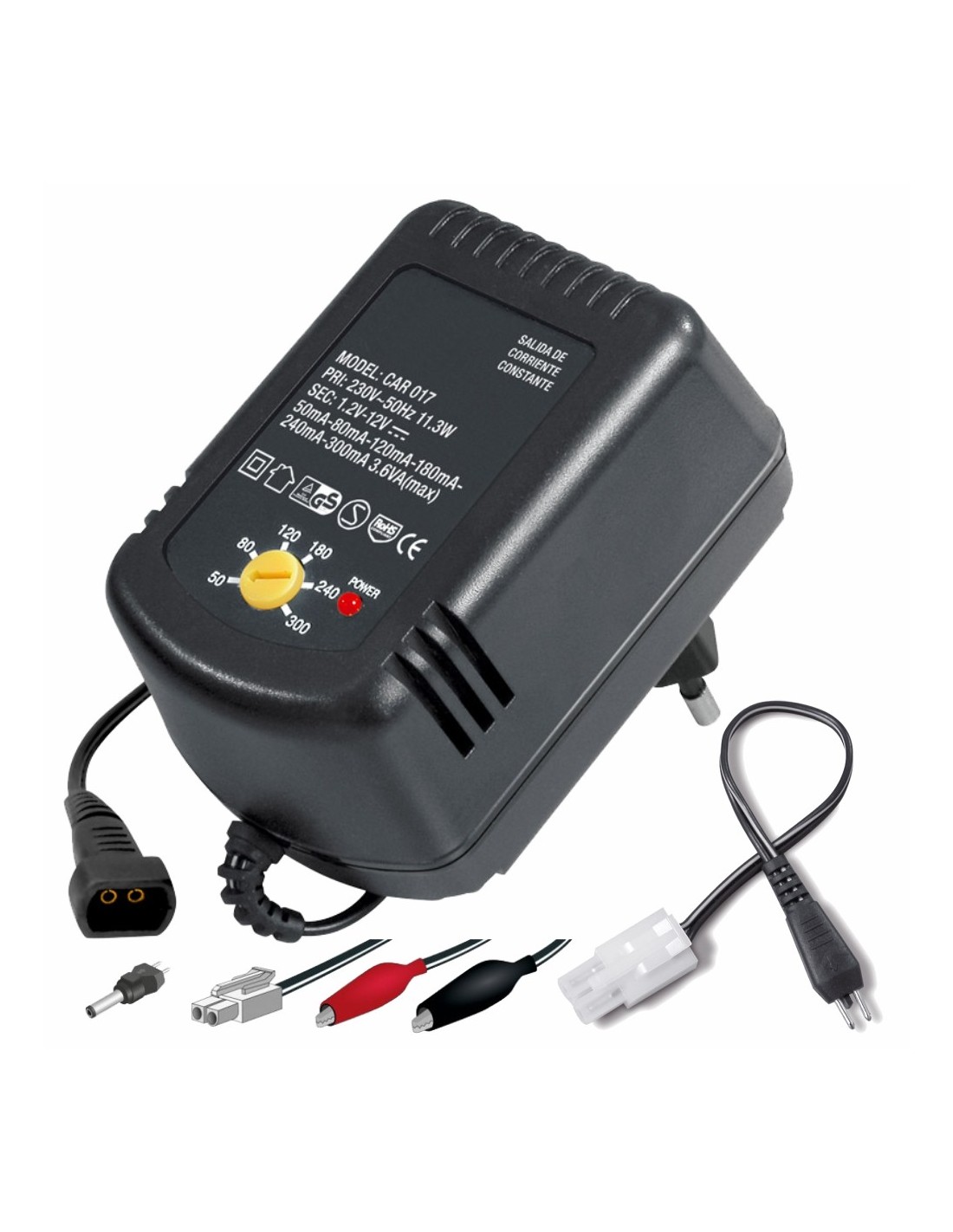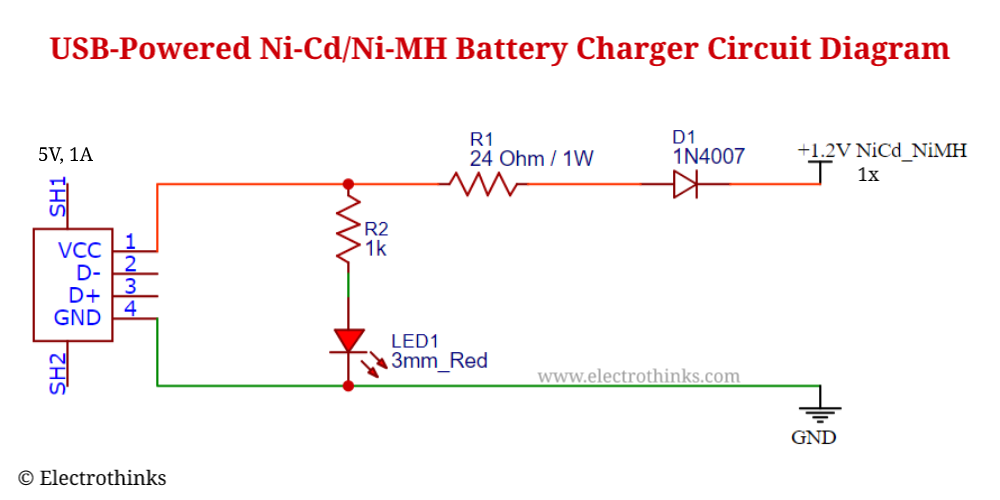Awe-Inspiring Examples Of Tips About Can I Use An Old NiCd Charger With New NiMH Batteries

New Product Colorful Battery Charger 8341 Liion Nimh And Nicd
Navigating the Battery Charger Maze
1. Understanding Battery Compatibility
So, you've got a drawer full of old electronics, and lurking inside are a bunch of rechargeable batteries. You've upgraded to the newer NiMH (Nickel-Metal Hydride) batteries, but that dusty old NiCd (Nickel-Cadmium) charger is staring you down. Can you use it? That's the million-dollar question, isn't it? Well, maybe not a million dollars, but definitely worth figuring out before you accidentally turn your batteries into tiny, expensive paperweights.
The short answer is: probably not. But, like with most things in life, theres a bit more to it than a simple "yes" or "no." Think of chargers and batteries as having a conversation. The charger is trying to "talk" to the battery and supply it with the correct amount of energy. If the charger is speaking a completely different language, the battery gets confused and things can go wrong. NiCd chargers are designed with NiCd batteries in mind and might not "understand" the charging needs of NiMH batteries.
NiCd chargers typically use a simpler charging method. They often deliver a constant current, and many older chargers don't have sophisticated cut-off mechanisms to stop charging when the battery is full. This can lead to overcharging your NiMH batteries, which can shorten their lifespan, damage them, or even, in extreme cases, cause them to leak or burst. Nobody wants battery acid on their favorite gadget!
The ideal scenario is to always use a charger specifically designed for the type of battery you are charging. These chargers have the correct voltage and charging algorithms to properly and safely charge your batteries. It's like giving your batteries the five-star treatment they deserve.

Battery Charger For Nicd Batteries
Why It's Risky Business
2. Delving Deeper
Let's get slightly technical. NiCd and NiMH batteries have slightly different voltage characteristics. While both are around 1.2 volts per cell, the way they behave during charging is different. NiCd batteries are more tolerant of overcharging, while NiMH batteries are more sensitive. That old NiCd charger, blissfully unaware of this sensitivity, might just keep pumping energy into your NiMH battery long after it's full.
Another key difference lies in how the charger detects when the battery is fully charged. Sophisticated NiMH chargers look for a slight voltage drop (called a "negative delta V") to signal that the battery is full. Older NiCd chargers simply rely on timing or a fixed voltage, which isnt accurate enough for NiMH batteries. Imagine trying to bake a cake using only a timer and no temperature control you're likely to end up with a burnt or undercooked mess.
Using the wrong charger could mean your NiMH batteries don't reach their full potential. They might not charge completely, giving you less runtime. Or, even worse, they could get damaged over time, losing their capacity and needing replacement sooner than expected. Its like fueling your high-performance sports car with the wrong kind of gas it might run, but it wont run well, and you might damage the engine in the long run.
Think about it this way: investing in a good NiMH charger is like investing in the long-term health of your batteries. It's a small price to pay to ensure they last longer, perform better, and don't become a fire hazard. Plus, modern chargers often have features like trickle charging to keep your batteries topped up without overcharging them.

The Exceptions (and Why You Should Still Be Careful)
3. When Might It Potentially Work? And a Big Warning
Okay, so I've been pretty adamant about not using an old NiCd charger with NiMH batteries. But there are a few very specific scenarios where it might be possible, but honestly, Id still advise against it unless you absolutely have no other option.
If your NiCd charger is a very simple, low-current charger and you closely monitor the battery temperature, you might be able to get away with it. I'm talking about the kind of charger that takes several hours to fully charge a battery. The trick is to feel the battery occasionally. If it starts to get noticeably warm, disconnect it immediately. Overheating is a sign of overcharging.
However, even in this scenario, you're still playing with fire (metaphorically, hopefully). You're essentially relying on your own judgment to prevent overcharging, which is not a very reliable strategy. It's like trying to drive a car with your eyes closed you might get lucky for a bit, but eventually, you're going to crash.
Furthermore, even if you successfully charge the battery without overheating it, you're probably not charging it optimally. The battery might not reach its full capacity, and its lifespan could still be shortened. So, while it might technically "work" in a pinch, it's definitely not recommended as a regular practice. There are better, safer, and more efficient ways to charge your NiMH batteries.

The Smarter Choice
4. The Benefits of Modern Chargers
So, we've established that using an old NiCd charger for NiMH batteries is generally a bad idea. What's the alternative? Simple: invest in a proper NiMH charger. The good news is that NiMH chargers are readily available, relatively inexpensive, and offer a whole host of benefits.
Modern NiMH chargers are designed to specifically address the charging needs of NiMH batteries. They use sophisticated charging algorithms to ensure that the batteries are charged safely and efficiently. They also have built-in safety features, such as overcharge protection, short-circuit protection, and reverse polarity protection. Its like having a personal bodyguard for your batteries.
Many NiMH chargers also offer features like trickle charging, which keeps the batteries topped up without overcharging them, and discharge functions, which can help improve battery performance. Some even have LCD screens that display the charging status of each battery, so you know exactly when they're ready to go. These features are like the bells and whistles that make the charging process more convenient and informative.
Choosing the right charger can also extend the lifespan of your batteries, save you money in the long run, and reduce the risk of accidents. Think of it as an investment in the longevity and performance of your rechargeable devices. Its a small price to pay for peace of mind and optimal battery health.

FAQ
5. Your Battery Questions Answered
Still have questions? No problem! Here are some frequently asked questions about NiCd chargers, NiMH batteries, and everything in between.
Q: Will using a NiCd charger definitely ruin my NiMH batteries?
A: Not necessarily immediately, but it significantly increases the risk of damage and reduces their lifespan over time. It's like eating fast food every day it might not kill you right away, but it's not exactly a healthy habit.
Q: Can I use a NiMH charger for NiCd batteries?
A: Generally, yes! NiMH chargers are typically smarter and can handle NiCd batteries safely. However, it's always best to check the charger's manual to be absolutely sure. Most modern smart chargers can detect battery types.
Q: What's the best way to dispose of old batteries?
A: Don't just throw them in the trash! Rechargeable batteries contain materials that can be harmful to the environment. Look for battery recycling programs in your area or drop them off at a designated collection point. Many electronics stores and hardware stores offer battery recycling services. Let's keep our planet happy!
Q: My NiMH batteries aren't holding a charge like they used to. What can I do?
A: Try a battery analyzer/refresher. Sometimes, NiMH batteries develop a "memory effect" (though it's less pronounced than with NiCd batteries). A battery analyzer can discharge and recharge the batteries to help restore their capacity. If that doesn't work, it might be time for new batteries.
